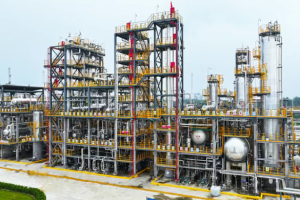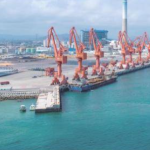July 21, 2025 –
Plastics Industry Faces Supply Chain Upheaval as US Tariffs Reshape Asian Trade Flows
The global plastics supply chain is bracing for disruption following the Trump administration’s sweeping tariff announcements targeting Southeast Asian imports. Effective August 1, 2025, new duties ranging from 25% to 40% will apply to plastic raw materials and finished goods from key manufacturing hubs including Vietnam, Thailand, and Indonesia.
Vietnam’s plastics sector appears most vulnerable, with industry analysts warning of potential production collapses. “The country’s 80% dependence on Chinese plastic feedstocks creates critical vulnerability,” noted an AsiaMB supply chain specialist. “These tariffs could sever vital resin supply lines within weeks of implementation.”

The tariff structure reveals strategic targeting:
• 40% punitive rates on Chinese-originating goods transshipped through Vietnam
• 35%+ tariffs on Cambodian and Thai manufactured plastics
• 32% duties on Indonesian chemical exports
Regional manufacturers face impossible choices – absorb unsustainable cost increases, relocate operations, or risk losing access to the crucial US market. Thailand’s auto parts sector and Indonesia’s growing battery industry, both heavy plastic consumers, appear particularly exposed.
Countervailing movements are emerging across ASEAN:
• Malaysia and Thailand implementing reciprocal tech product quotas
• Accelerated negotiations for China-ASEAN tariff harmonization
• Emergency stockpiling of critical plastic feedstocks
“Smart players are already diversifying sourcing networks,” advised a Singapore-based polymer trader. “We’re seeing increased interest in Malaysian and Philippine suppliers less impacted by the tariffs.”
The tariffs threaten to unravel years of regional supply chain development. Vietnam’s $120 billion trade surplus with the US – equivalent to 30% of its GDP – hangs in the balance. Plastic compounders and masterbatch producers are advised to audit their Southeast Asian exposure immediately and develop contingency plans for alternative material sourcing.
Industry observers suggest the turmoil may ultimately benefit Chinese domestic producers as regional customers are forced to source closer to home. Meanwhile, ASEAN’s collective response could reshape Asian trade patterns far beyond the plastics sector.














